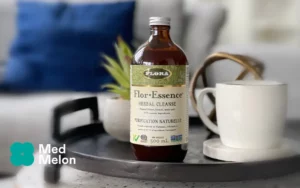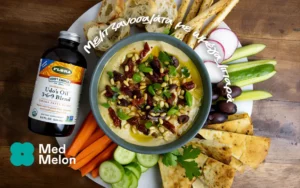Scientific Names of Knotgrass Herb: Polygonum aviculare L. [Fam. Polygonaceae]
Forms:
Knotgrass herb, cut and dried; knotgrass herb aqueous extract and tea
Traditional Usage:
– Antibacterial (topically)
– Anti-inflammatory
– Antimicrobial (topically)
– Antioxidant
– Antiseptic
– Astringent (externally)
– Breathing Disorders
– Bronchitis
– Circulatory Disorders
– Diuretic
– Gingivitis
– Hepatitis
– Inflammation of the pharynx
– Laryngitis
– Liver Conditions
– Oral Hygiene
– Skin Problems
– Sores
– Styptic (in certain types of bleeding)
– Vascular Disorders
– Wounds
Overview:
The German Commission E recommends using knotgrass herb and flowers, Polygonum aviculare L. [Fam. Polygonaceae], for treating mild respiratory catarrh (mucous), as an expectorant for coughs, colds and bronchitis, and for alleviating inflammation of the mucous membranes of the mouth and throat. Knotgrass, otherwise known as Mexican Sanguinaria extract (Polygonum aviculare L.), can also be used against gingivitis. Knotgrass contains many antimicrobial compounds. It is well known that gingivitis is a bacterially-elicited inflammation of the marginal gingiva, and as such a study was recently done on the effectiveness of knotgrass extract against gingivitis. The antibacterial and antiinflammatory effects of the extract were evaluated over a two-week period and the results showed that Mexican Sanguinaria extract in oral rinse significantly decreased gingivitis within two weeks (no brushing was allowed during the study). A significant increase in dental plaque was also observed; however, the consistency of the plaque permitted its mechanical flushing easily. From this study, it was concluded that knotgrass extract in oral rinse could safely be employed supportively in the therapy of gingivitis. Knotgrass herb and flowers were also used in Swedish traditional medicine to treat inflammatory diseases and wounds. A study to evaluate the benefits of knotgrass tea for preventing blood platelet stickiness and blood clots tested the inhibitory activity of the tea on prostaglandin biosynthesis and platelet activating factor (PAF) effects and found that knotgrass was significantly active in both assays (attributed to the action of flavonoids). In pharmacological experiments, knotgrass extracts have also been shown to be active ACE (angiotensin converting enzyme) inhibitors, which helps to explain the vascular benefits of the herb, attributed to the presence of tannins in the tea. The methanol extract of knotgrass herb has also recently been shown to prevent liver fibrosis in rats and normalizes many important liver enzymes.
Active Ingredients:
The leaves and flowers of knotgrass contain: Approximately 0.2-1% flavonoids; kaempferol; myricitrin; quercitrin; avicularin (quercetin 3-arabinoside); mucilage; tannic-acid; approximately 1% silicic acid; phenol-carboxylic acids and coumarin derivatives including umbelliferone and scopoletin; and other common plant substances.
Suggested Amount:
Unless otherwise prescribed, cold water is poured over 1.5 grams (approximately 1 teaspoonful) of finely chopped knotgrass herb and brought to a boil and after ten minutes strained. Knotgrass herb and flower tea is taken 3-5 times per day. For use as a mouthwash against gingivitis, 1 mg/ml of knotgrass extract is used in an oral rinse twice daily. For best results with this unique oral health measurement, it is recommended to continue tooth-brushing as normal, although it is best to brush before (as opposed to after) using this oral rinse, so as to avoid washing away the active ingredients.
Drug Interactions:
None known
Contraindications:
None known
Side Effects:
None known
References:
Gonzalez Begne M, Yslas N, Reyes E, Quiroz V, Santana J, Jimenez G. 2001. Clinical effect of a Mexican sanguinaria extract (Polygonum aviculare L.) on gingivitis. J Ethnopharmacol. 2001 Jan; 74(1): 45-51.
Nan JX, Park EJ, Kim HJ, Ko G, Sohn DH. 2000. Antifibrotic effects of the methanol extract of Polygonum aviculare in fibrotic rats induced bile duct ligation and scission. Biol Pharm Bull. 2000 Feb; 23(2): 240-3.
Zhang XQ, Xu LS. 1989. Determination of avicularin in Polygonum aviculare L. by square wave polarography. Proc Chin Acad Med Sci Peking Union Med Coll. 1989; 4(4): 193-5.
Tunon H, Olavsdotter C, Bohlin L. 1995. Evaluation of anti-inflammatory activity of some Swedish medicinal plants. Inhibition of prostaglandin biosynthesis and PAF-induced exocytosis. J Ethnopharmacol 1995 Oct; 48(2): 61-76.
Wichtl M (ed). 1994. Polygoni avicularis – Knotgrass herb. In Herbal Drugs and Phyto-pharmaceuticals. (English translation by Norman Grainger Bisset). CRC Press, Stuttgart, pp. 386-387.




